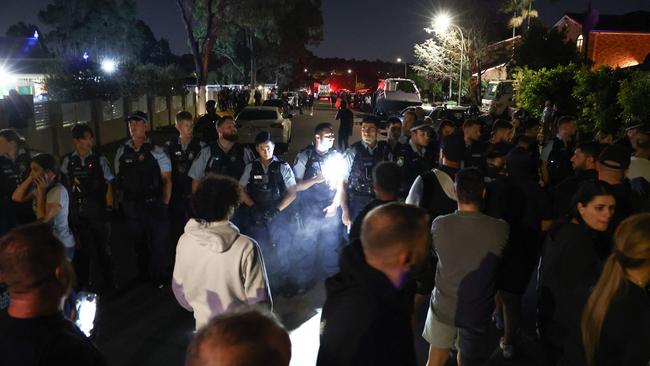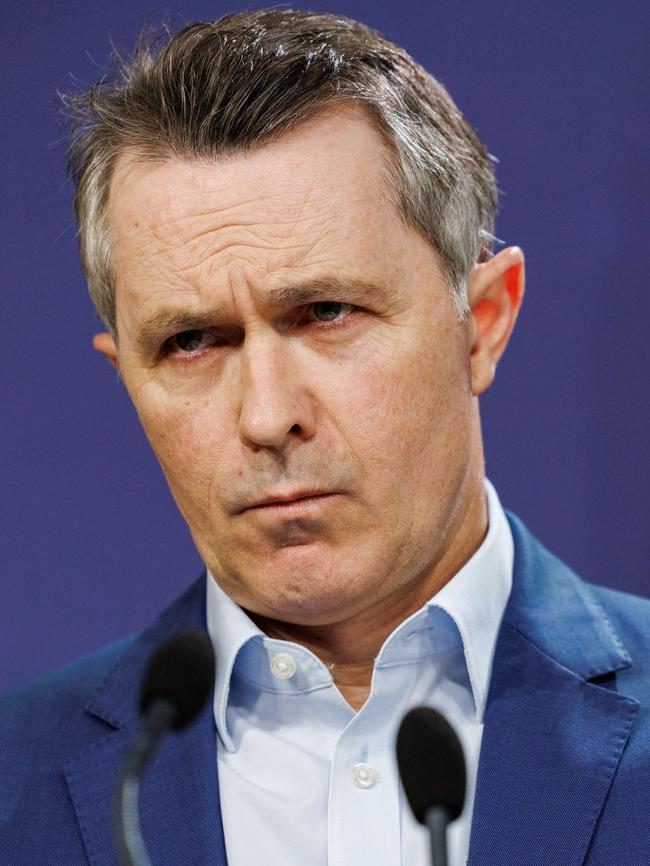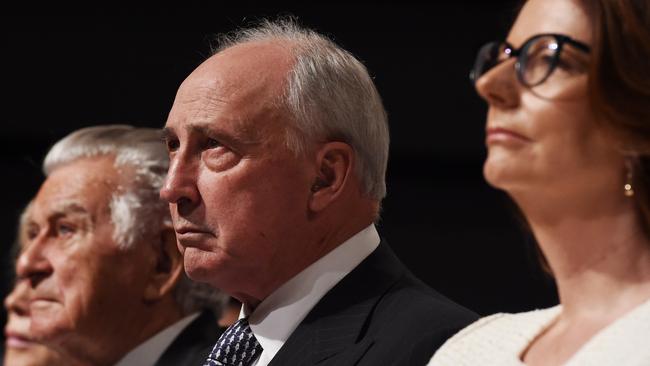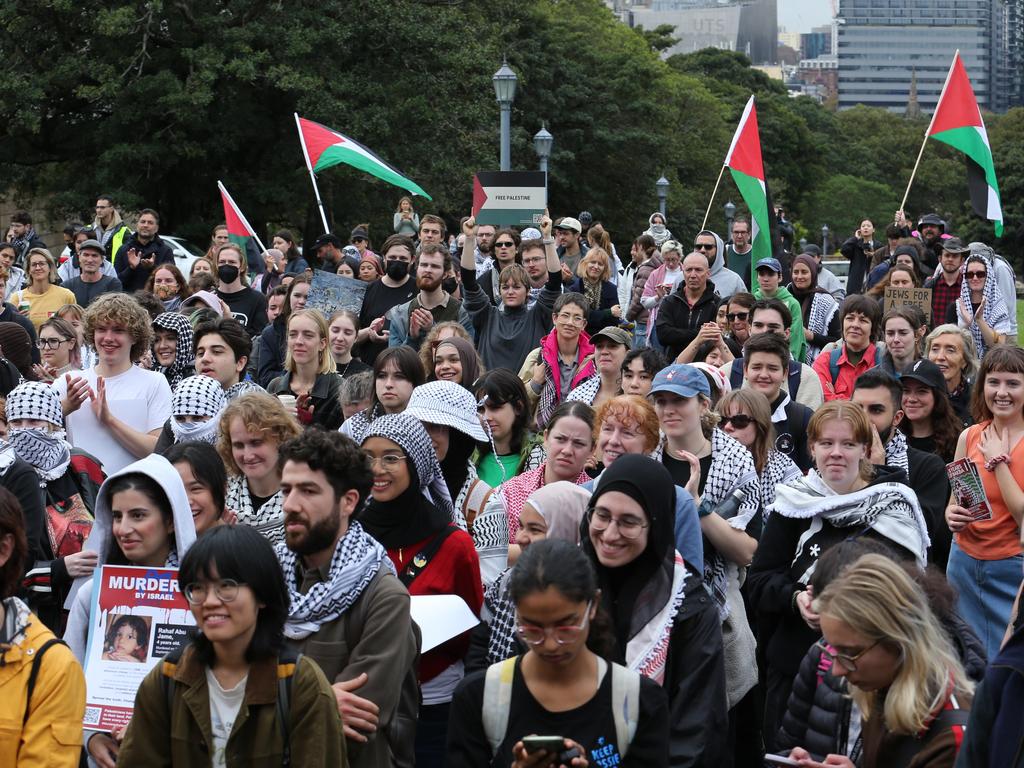
Unlike the Vietnam War, the last overseas conflict to arouse such fierce and divisive domestic passions, there are no Australian military forces in action on one side. It’s not that the pro-Hamas protesters are trying to save young Australians from participation in what they see as an unjust war or that they have an immediate material interest at stake.
What’s driving the pro-Hamas protesters (plus the vastly smaller group of pro-Israel counter-protesters) is righteous anger at what they see as a self-evident evil, even though their objective – the elimination of the Jewish state “from the river to the sea” – would necessarily involve the certain displacement and the likely annihilation of up to 10 million Jews.
How can so many Australians have come to believe something that’s so clearly morally deranged? Especially given Australia’s long-term bipartisan support for Israel, best expressed in Bob Hawke’s immortal line: “If the bell tolls for Israel it tolls for all mankind”?
Essentially there are two factors at play: the first is the pervasive sentiment in favour of “victims” over “oppressors” that’s the result of a generation of culturally Marxist “decolonisation” in schools and universities. Because the Jewish people are “settlers” with “white privilege”, even though their ancestors have been in what some want to now call Palestine for about 4000 years, and even though many are ethnically hardly distinguishable from the local Arabs, almost any atrocity against them is simply getting even.
And any Israeli response to the October 7 massacre was almost by definition genocide rather than justified and legal self-defence. But the other factor is the powerful sense among so many Muslims, despite living in secular democracies like ours, that everything should be seen through the prism of a faith that transcends any other loyalty and thus demands total submission to the will of Allah.

Plainly, not everyone who identifies as Muslim is incapable of grasping the separation of church from state and the distinction between the things of God and Caesar. But many, perhaps a large majority, have great trouble accepting the culture of an easygoing “live and let live” society and think that it’s our duty as Australians to accommodate ourselves to them rather than the other way round.
To them, their duty to their fellow Muslims trumps any solidarity they might have with their fellow Australians who, in any event, as “kafir” (or unbelievers) are mostly mired in ignorance and sin. Hence their solidarity with Gaza and its people, regardless of Hamas’s crimes, and monomaniacal focus on this one issue.
Lest anyone dismiss the potential political influence of a million Muslims (or about 4 per cent of our population), consider what has just happened in Britain, where “Gaza candidates” have just won more than 40 of the 2000 seats up for grabs in last week’s English local government election. This has been driven by a campaign very similar to the one now running here.
The Muslim Votes Matter website, here in Australia, is attempting to mobilise Muslims to vote on Muslim issues, in the seats where Muslims are 5 per cent plus of voters. There’s an almost exact parallel in Britain, a website called The Muslim Vote, with a very similar format, that’s equally trying to get Muslims to vote as a bloc, especially over Gaza.
This political mobilisation of Muslims must be taken seriously, with the BBC reporting: “in the 58 local council wards … where more than one in five residents identify as Muslim, Labour’s share of the vote was 21 per cent down”. What this suggests is that many British Muslim voters were punishing the party they usually support, even though it has been somewhat more pro-Palestine than the Tories, on the basis that it hasn’t been sufficiently pro-Hamas.

A particular grievance, it seems, is the fact 80 per cent of British MPs, including most Labour MPs, voted against a Scottish Nationalist resolution calling for an “immediate ceasefire” in Gaza, on the grounds that they didn’t want to give victory to Hamas.
Two per cent of English council seats falling to hardline Islamist candidates may not seem like such a big deal until it’s grasped that they weren’t especially extreme about any policy applying inside Britain. Put simply, they weren’t interested in domestic policy at all other than as it impacted on Gaza, meaning it was a win built on a platform that had nothing to do with the country in which they live.
In Leeds, the successful Greens candidate, Mothin Ali, dressed in Palestinian robes, celebrated his victory shouting “Allahu Akbar” and declaring “this is a win for Gaza”.
As the Conservative peer Daniel Hannan pointed out, “rather than council tax, children’s services or bin collection”, it was Palestine that got him elected.
Hannan sees this new phenomenon of sectarian voting flowing, first, from the “Arabisation” of British Muslims, who had previously largely assimilated into the wider society and, second, as the failure of Britain’s leadership to stress the civic patriotism needed for a multiethnic society to work.
Leadership is key and without it societies built on migration come under pressure and fray.
In the wake of the council elections, The Muslim Vote is now making 18 demands of British Labour, including the immediate recognition of Palestine, ending all military ties with Israel, permitting Muslim prayers at schools, ensuring Sharia compliant government benefits and dropping references in legislation to religiously motivated violence.

In response, British Labour leader and likely next prime minister Sir Keir Starmer has promised to win back the trust of Muslims alienated by his stance on the Middle East conflict. But this is unlikely to be via a renewed emphasis on an overriding loyalty to Britain for everyone (including Muslims) as much as that’s desperately needed. Instead, it’s much more likely to be by further concessions to religious separatism.
Before concluding that there could be no similar capitulation to Islamist pressure here, note Education Minister Jason Clare’s (whose electorate is 30 per cent plus Muslim) hard-to-credit statement this week that “from the river to the sea” is not objectionable because it means “different things to different people”.
The Prime Minister’s mild rejoinder that the slogan now echoing through our streets and across our campuses is, in fact, contrary to the government’s support for a two-state solution was tepid given this phrase is about the extermination of Israel.
Crunch time for Australian Labor could come as soon as tomorrow when the UN votes on whether formally to admit Palestine as a member.
The last time the status of Palestine was voted on, when Julia Gillard was PM, Australia abstained; so voting Yes would be contrary to all previous practice.
Importing the world’s troubles is what happens when we allow immigrant arrivals to live in Hotel Australia rather than join Team Australia.







With two Islamist stabbings within three weeks, anti-Israel protests routinely shutting down city streets and encampments at universities now dropping the pretence that they’re merely pro-Palestinian following refusals to denounce Hamas and calls for a new intifada, the question must be faced: how has an argument over Gaza become such a big issue here in Australia and what does this say about the way our country has changed?